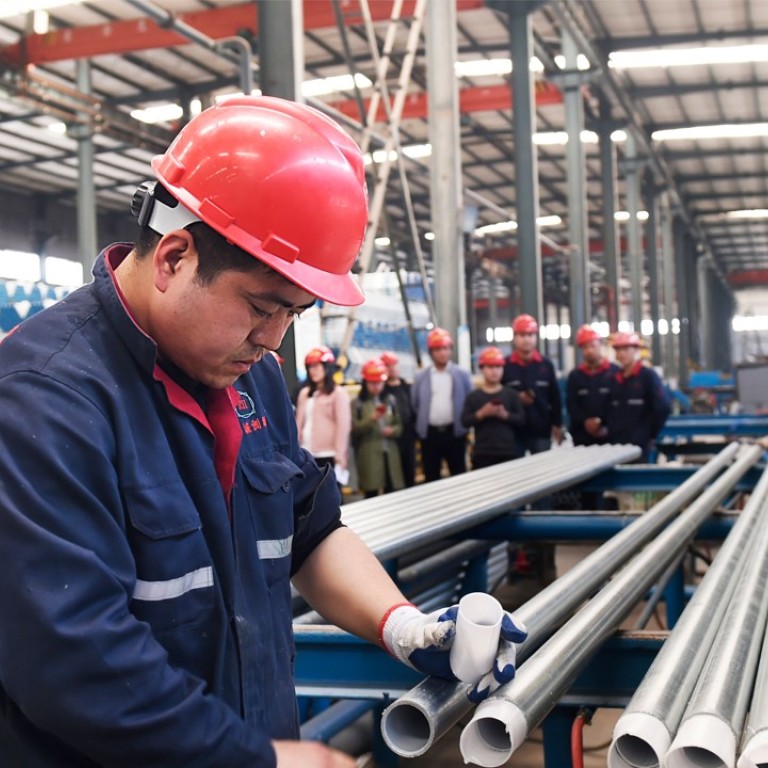Advertisement
Advertisement

Donald Trump’s trade war with China has not done the US any favours so far
S. George Marano says the US has tipped its hand too much in the current trade dispute, while China has come out of the conflict looking better
In a previous article, I hypothesised that if a US-China trade war were to happen, China would come out of it much better than the United States. My argument was based on economic and social factors that gave China an advantage over the US. What has unfolded since has been tariffs on key Chinese and US exports in a tit-for-tat encounter. Overall, the US as the instigator was on the offensive and all China had to do was resist. And it did, which meant this endeavour has been a big loss for the US.
Fast forward 17 months and there are many events now plaguing the unstable US administration. These include key personnel in the administration either departing or being censured in addition to the many political and personal witch-hunts. In China, the backlash against the ban on US shipments of vital components to ZTE from American suppliers has seen much of the public standing firmly behind Beijing. Coincidentally, ZTE, has now been offered assistance by the US administration, which can be understood as a veiled mea culpa from Washington.
Watch: Trump vows to help save Chinese telecom jobs
The optics in this trade war are also an important indicator. The one of significance was the US trade team visiting Beijing as an indication of the balance of power. This can be interpreted as the weaker party travelling to seek a truce. Another optic to consider is China accepting some of the US demands, which is not a sign of weakness. This is fairly common in Chinese dealings where agreements are considered malleable, and is very much in line with the Confucian philosophy. Those experienced in China business know this well.
The US trade team visiting Beijing ... can be interpreted as the weaker party travelling to seek a truce
However, this trade war is not over yet, and one can expect the next flare-up to be greater in intensity. In the meantime, the US is more than likely to go back and revise its trade war plans while the Chinese analyse and insulate their weaknesses. North Korea, Syria, Iran and domestic pressures will all weigh heavily on a US administration that is now forced to make America great again. Overall, the signs point to a retreat by the US for now.
There have been several effects of the trade dispute. On the US side, the first is the cracking of the Trump code for negotiations. This begins with accusations and threats. Those that capitulate go under while standing your ground results in dialogue. Kim Jong-un is a case in point.
Second, China exposed the US’ many weaknesses, especially its agricultural exports. Overall, this can be detrimental to the US as its reverberations will have an impact on low-income consumers who cannot stomach another financial shock. These consumers are the base for this administration and will cause major headaches going forward.
On the Chinese side, the trade war has also exposed significant weaknesses. The ZTE saga and China’s 2025 initiative showed just how dependent China is on high-value imports for its future ambitions. However, by targeting certain industries and initiatives, the Trump administration has let the cat out of the bag. With the possibility of a new trade war, Chinese authorities will most likely focus on developing these industries domestically but now with greater intensity.
At a global level, expect the US to also try and influence its allies to assist with its trade war. Though the same strategy is being employed against Russia, these allies will be forced into choosing between politics and economics. This is already playing out with the European Union’s position against US demands to halt trading with Iran after its decision to pull out of the nuclear deal. If it comes to this point, expect the US to be isolated. This will happen even with its closest allies and will take China closer to overtaking the US economically.
S. George Marano is a PhD student at RMIT University, Melbourne, Australia, researching international business and strategic management
This article appeared in the South China Morning Post print edition as: Trade stand-off hasn’t done the US any favours

Post
